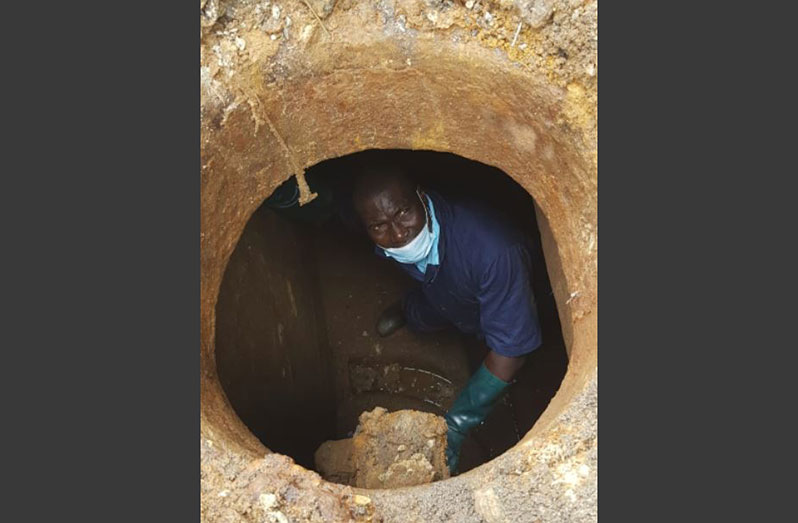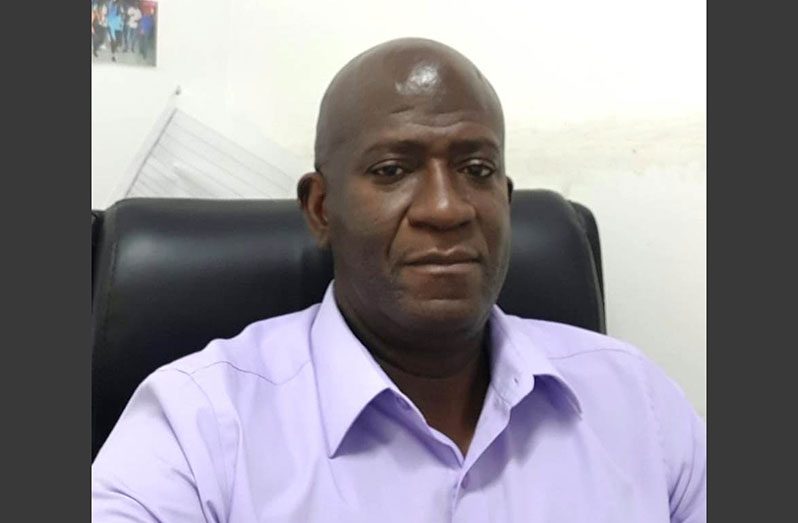AS the Guyana Water Inc. (GWI) continues to battle the task of maintaining an effective sewerage network in Georgetown, of particular concern to the entity is FOG – Fats, Oils, and Grease – that are released into the system by cooking houses that have no grease traps installed.
Sanitation Manager Rensforde Joseph described FOG as one of the major problems being encountered by GWI – one that they have been aggressively pursuing. However, many restaurants, canteens, cafeterias, butcheries, and hair salons, among others, are yet to become compliant so far as a grease trap is concerned.
“These places should have a grease trap installed that would trap the FOG and prevent it from getting into the system,” Joseph explained in an interview with Guyana Chronicle, adding, “Let’s just say there is a significant number [without grease traps], especially the new restaurants. There is also the issue of persons cooking at their premises and selling on the street corners.”
The Mayor and City Council (M&CC) had at one time been the authority to ensure that all cooking houses had grease traps under the Public Health Ordinance, but the problem is now being managed by GWI.
Commenting on the issue, M&CC Solid Waste Management Director, Walter Narine, would especially like if GWI can work in partnership with the City Council to arrest the problem. “I am really concerned with grease traps. When they flush their oil waste, it goes into that trap first and it’s separated before the rest gets into the sewerage system,” he shared on the importance of having a grease trap in place.
“I’m not flagging anyone; I am more towards building partnerships. I would love for us to have a partnership for us to go about inspecting restaurants. Grease blocks up the system and is a messy, unhealthy practice,” Narine added.
He believes that restaurants should face closure if they fail to respond to warnings about installing a grease trap. “Our sewerage system is an outdated system; it’s been there for ages and it’s something that really needs to be fixed. I would love to have a partnership with GWI.”

Meanwhile, Joseph offered that GWI has so far met with proprietors, printed and shared information on the need for grease traps and maintenance; has given designs and determined sizes; and has issued fines and removed customers from the system.
In general, the care and maintenance of Georgetown’s sewerage network, which stretches across 457 hectares of land, from Kingston to Albouystown, requires the cooperation of both residents and authorities.
According to Joseph, GWI has been experiencing an inability to access some of the chambers that are there to allow the maintenance team to access the line which is underground and to be able to clear blockages. Over the years, it has been an uphill task to access some of the chambers at Stevedore, Tucville, Albouystown, and Alberttown, because they are all located in alleyways.
Apart from an overgrowth of vegetation at these locations, there is the problem of residents dumping in the alleyways. “Old fridge, old zinc, pieces of wood; you name it. Even though we may weed and clear it, we still have these obstacles to overcome to get to a chamber,” Joseph explained.
To compound the problem, persons have been stealing the chamber covers. This means that the manhole is now left opened to all kinds of obstacles and solids getting into them thus contributing to blockages in the City. “The only thing that should get in is household waste, nothing else. Ensure that if there’s a chamber inside your yard it is easily accessible. If there’s an open chamber, communicate with GWI and we will have it covered at no cost to you.”
Residents have also been contributing to blockages by covering over the chambers in their yards. Joseph explains: “In most of the yards, there are inspection and connecting chambers but you find residents paving over their yard and covering the chambers. No chamber should be encumbered or enclosed. If you’re raising the level of your yard or you’re concreting it, you should raise the level of the chamber at the same time so that it is above ground and is easily accessible for maintenance purposes.”
The environmental impact, Joseph noted, is quite significant. “If a chamber is blocked resulting in overflow, then you have raw sewerage that comes with a number of pathogens that are detrimental to your health and the marine environment. You also don’t want the toxic gas in the sewerage to enter into the environment nor raw sewerage flowing in anyone’s yard, street, and the waterways.”



.jpg)











